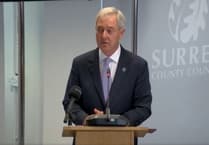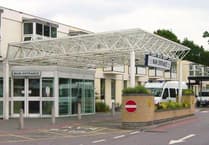COVID-19 infection rates are on the rise locally – with 51 new cases reported in Waverley in the seven days to July 8, an increase of 29 per cent on a week earlier, and 91 new cases reported in neighbouring East Hampshire, a 70 per cent rise.
The case rates per 100,000 people – 182.1 in Waverley and 181.5 in East Hampshire – remain significantly below the January highs, when 728.3 cases per 100,000 were reported in Waverley, and are also below the county averages, of 224.4 in Surrey and 215.8 in Hampshire.
But the spread of the Delta variant ahead of so-called ‘Freedom Day’ on Monday is causing significant concern locally.
Waverley Borough Council leader Paul Follows said “many” residents had contacted him to express “deep concern and anxiety” at the government’s decision to remove restrictions, and expressed his intention to continue wearing a face mask.
Cllr Follows added: “Despite the government decision on these rules, I still believe we have a collective responsibility as a community to do all we can to keep rates, hospitalisations and deaths as low as we can.”
And Dr Ed Wernick, the GP leading Farnham’s Covid response, also expressed his concern at the imminent ending of legal restrictions.
He said: “I don’t know how we can legitimately have 1,600 people rammed into a nightclub, clearly disinhibited, or thousands attending festivals? It’s a Delta variant petri dish.
“It all feels like a very high-stakes social experiment. The idea of reducing legislation and empowering people with personal responsibility is a necessary step. But I don’t think as a society we can take the handbrake off all aspects of life. Let’s not pretend things are going back to normal.
“We could still overwhelm the NHS – not necessarily with hospital admissions and deaths, but with long-term complications from long-Covid and all the people who need less intensive support in primary care. We are still trying to support people through 18 months of unmet need.”
To minimise the risk to the NHS, themselves and others, Dr Wernick is calling on people to ask themselves ‘what is my own personal risk?’ before entering certain situations.
“Consider your current state of health and your age, have you been double vaccinated, and has enough time passed since your jab for the antibodies to develop?
“And then think about the environment you’re going into – is there a level of distancing that you’re comfortable with? Is there a level of ventilation?
“Be wary that if you’re drinking alcohol you may become less cautious and that could create a higher-risk situation. Keep your eyes wide open going into these environments.”
There is also a push to vaccinate the remaining 18 to 30 year olds yet to receive their first jab – with Farnham Hospital’s first walk-in vaccine clinic deemed a success last weekend, attracting more than 100 ‘walk-ins’.
But Dr Wernick would now like to see even younger age groups vaccinated to reduce disruption to schools.
He continued: “I’d like to see the 12 to 18 year olds vaccinated, as they already do in Germany.
“To refer to them as a lost generation seems over the top. But their experience of school is so different to what it would have been in the most delicate of years of one’s life.”





Comments
This article has no comments yet. Be the first to leave a comment.